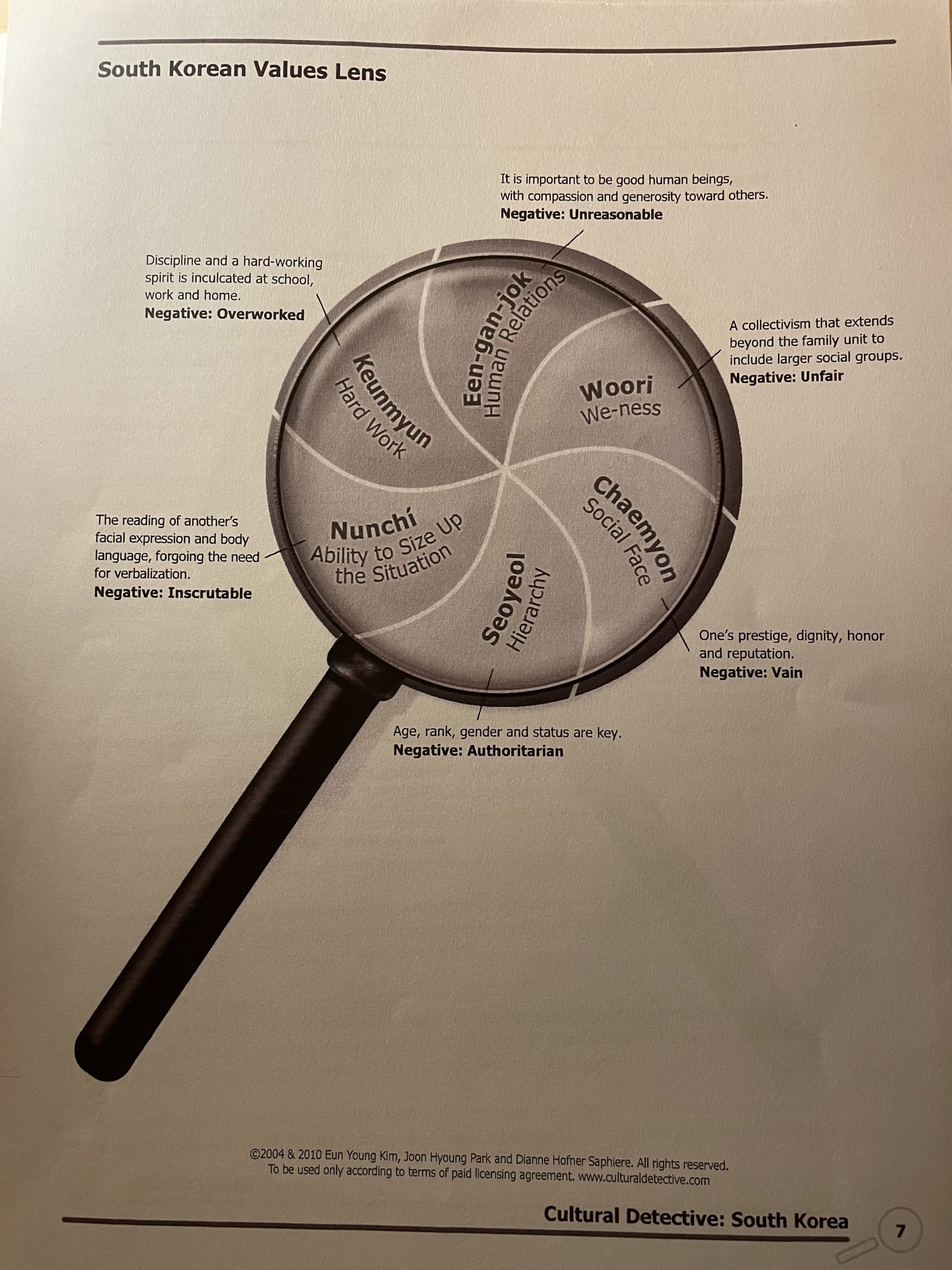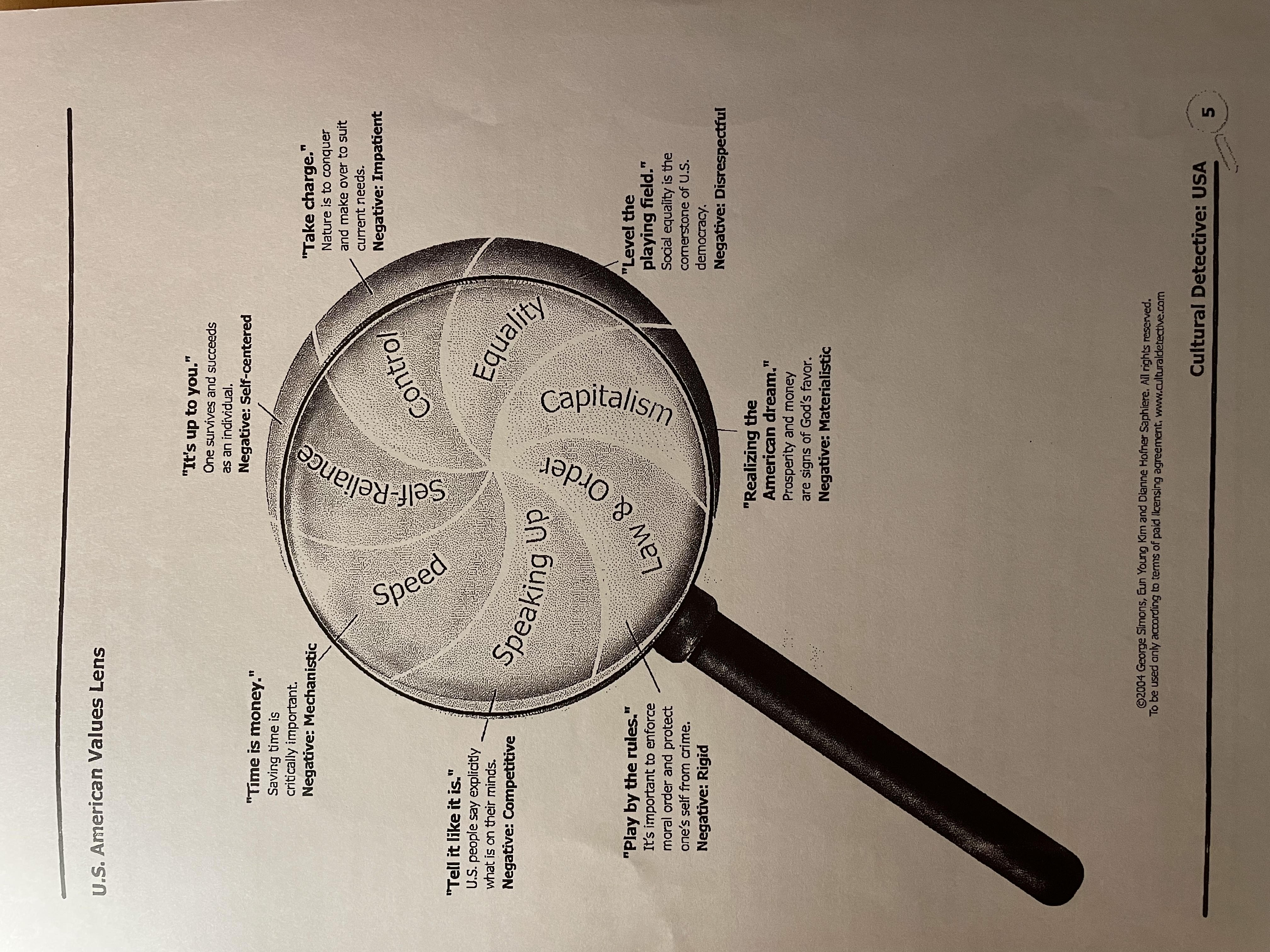
How the US Values Differ from South Korea
Background: I share an assignment I wrote in my Intercultural Communication and Leadership in Seoul course about sharing about my thoughts about the US values while learning more about my Cultural Partner’s Korean values. I found that many topics I learned in this class is beneficial to better understand the Korean culture. The information presented in this assignment is written after interviewing my Cultural Partner, so this might not depict all of Korea and the Korean people, nor is it representative of the entire US and the American people.
While explaining the American cultural values to my Cultural Partner, I noticed how individualistic and capitalistic the US is. Its focus on speed and capitalism really define the US as the American dream is an idealistic goal many try to achieve. Often, to achieve the American dream, individuals, often from immigrant backgrounds, work extremely hard. They would work endlessly and for those who are lucky, they are able to accumulate wealth and purchase property to achieve that American dream. With the growing economic changes and where inflation can rise above wage increases, the Dream might never be attainable but regardless an important value to the US.
Similar to US’s American Dream, in Korea, keunmyun, which means hard work, often plays a great role in Korean culture. Their extensive 70-hour work weeks can attest to this. Their beliefs that they cannot leave before the boss can also play a great role due to their collectivist mentality. Members work as a group for the greater good of the company or to achieve an overall goal. Culturally, my Seoulmate explained that even though Koreans play hard and go out to drink, they have feelings of guilt for not working more or harder. I find that Koreans live in such pain where work dictates their lives. We even see this through their earlier years in high school where Korean students are forced to study 10-12 hours per day. After coming to a university, they focus on job preparations, which can still take up much of their daily lives. Such values can lead many to overwork themselves and add a burden to their daily lives. One item I did not know prior is how much the Korean War affected Korea’s values today. When asking my cultural partner why this hard work (usually overworked) mentality persists, he said that mentality was needed for survival during the war. Many Koreans moved to other countries where they worked for cheap labor in order to survive. This value stayed even after the war.
However, I do not agree that law and order is considered one of US’s main values. With its preference towards capitalism, those with a higher economic status can escape the law through their fame, money, and status which differ from those of lower economic status. In the US, there is also this self-reliance and control where hierarchy does not come into play as much as it does in South Korea. In the US, individuals respect those who have earned their respect
and trust regardless of the title status. Yet, in Korea, seoyeol, which means hierarchy, is relatively important where age matters and status changes how one respects the other; all of which originates from Confucianism. My Seoulmate states that corporations are changing their rules which prioritize equality in the workplace. This means managers cannot hit or curse at junior partners and that younger members can be promoted regardless of gender or age. As for the US, one additional value I find the US greatly believes in is balance. Individualism in the US means a higher work life balance, where work and personal time off are prioritized equally. In a capitalist society, if the employees are not paid for overtime, the workers will not work overtime as a respect for their own time unlike the Korean society who will continue to work to support the greater goal of the company. Overall, while there are some similarities in the American and Korean culture, these different values contribute to the different ways people from the Korea and US behave and think.

